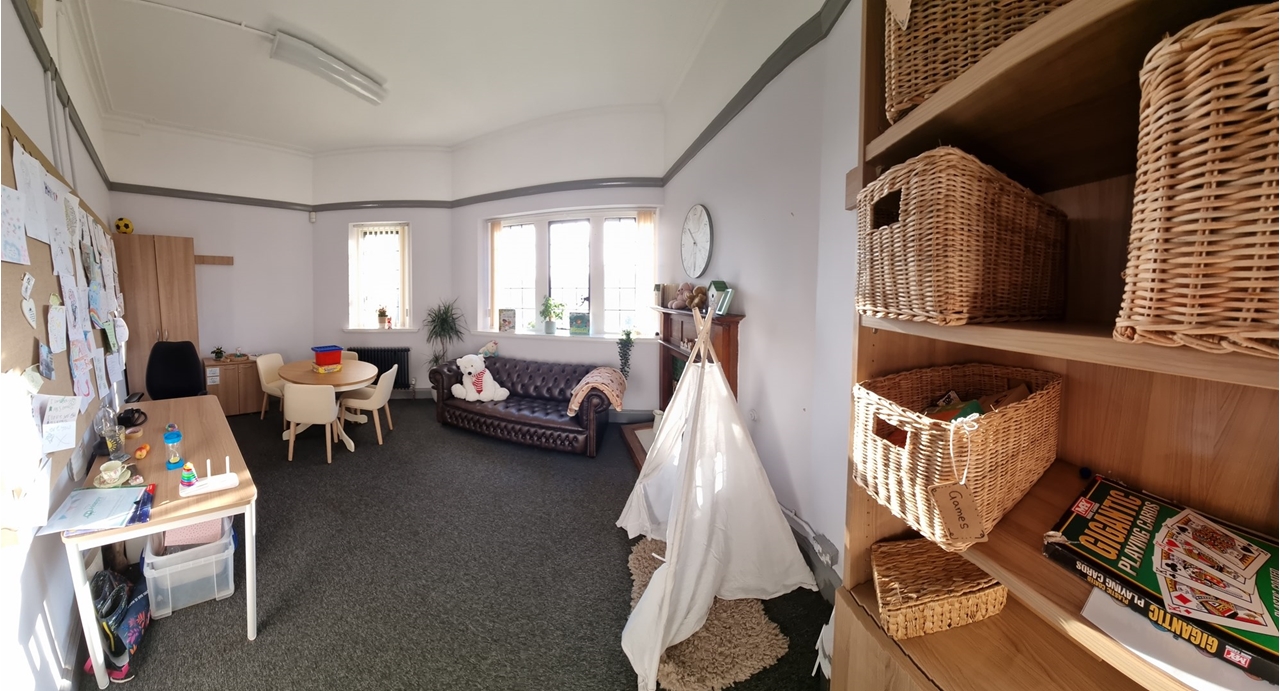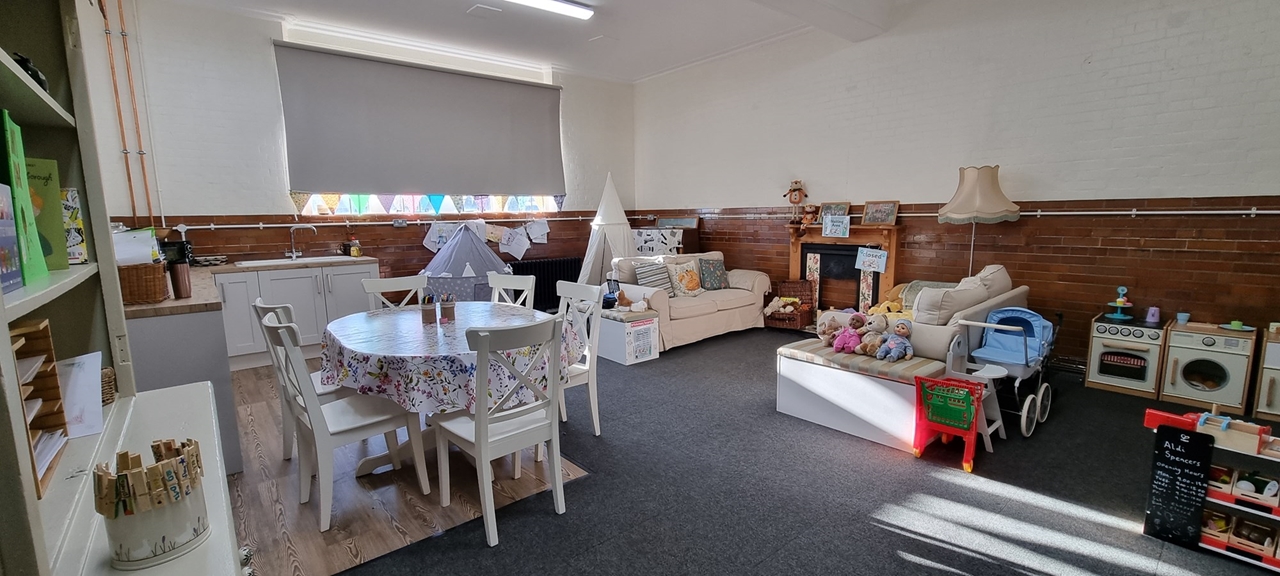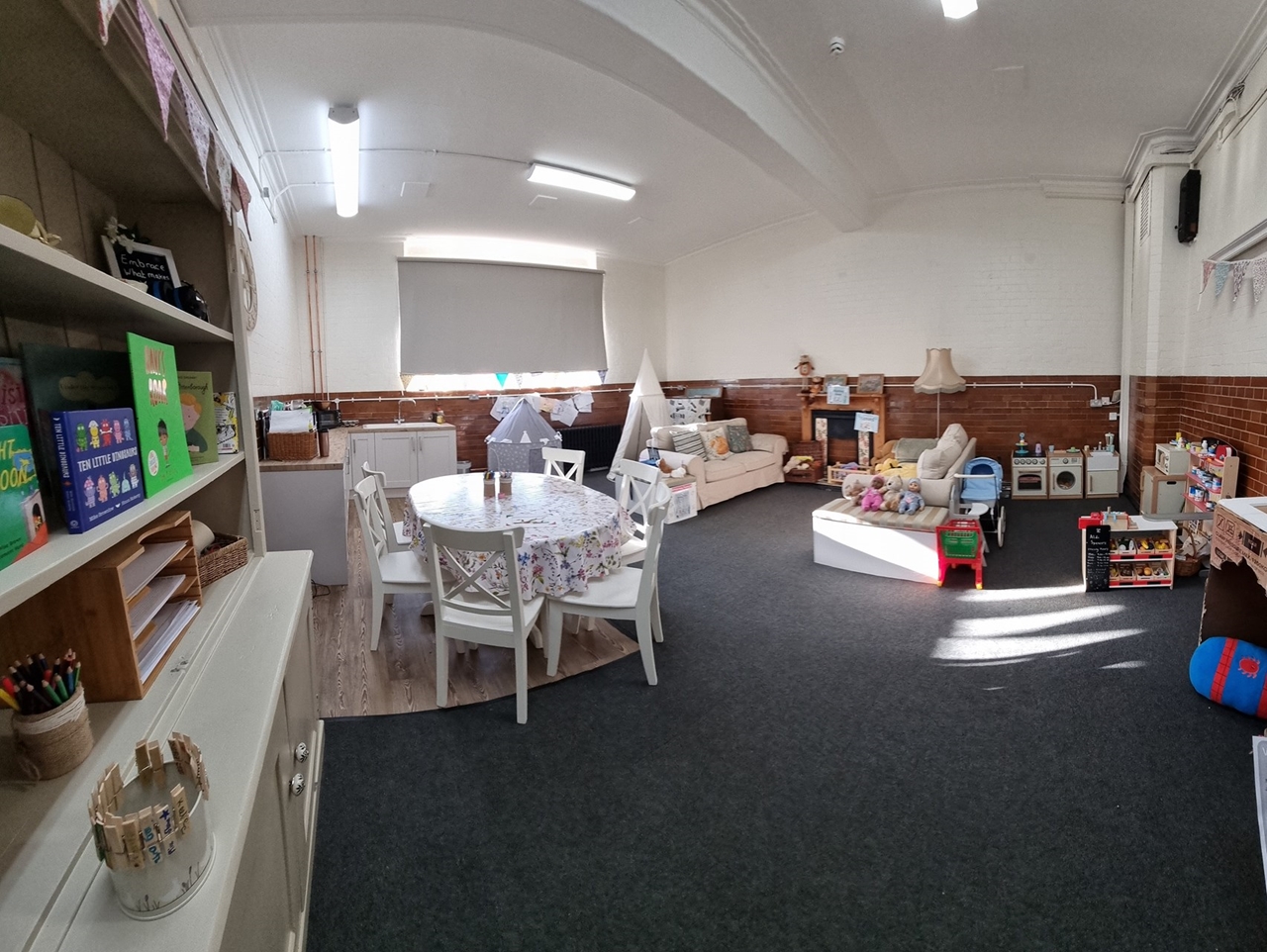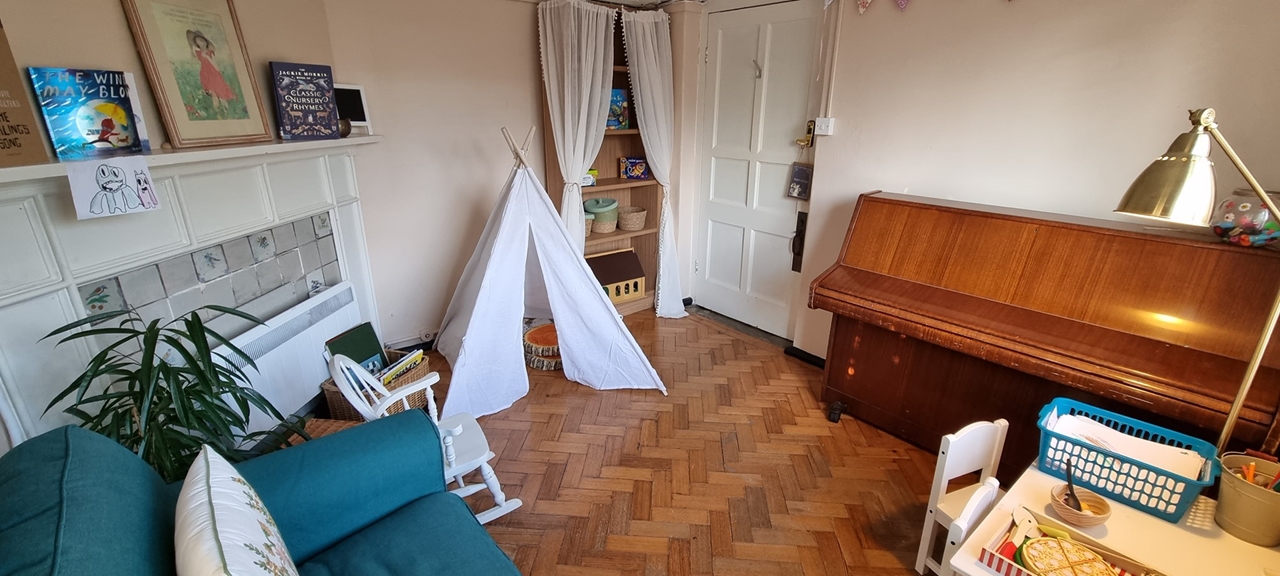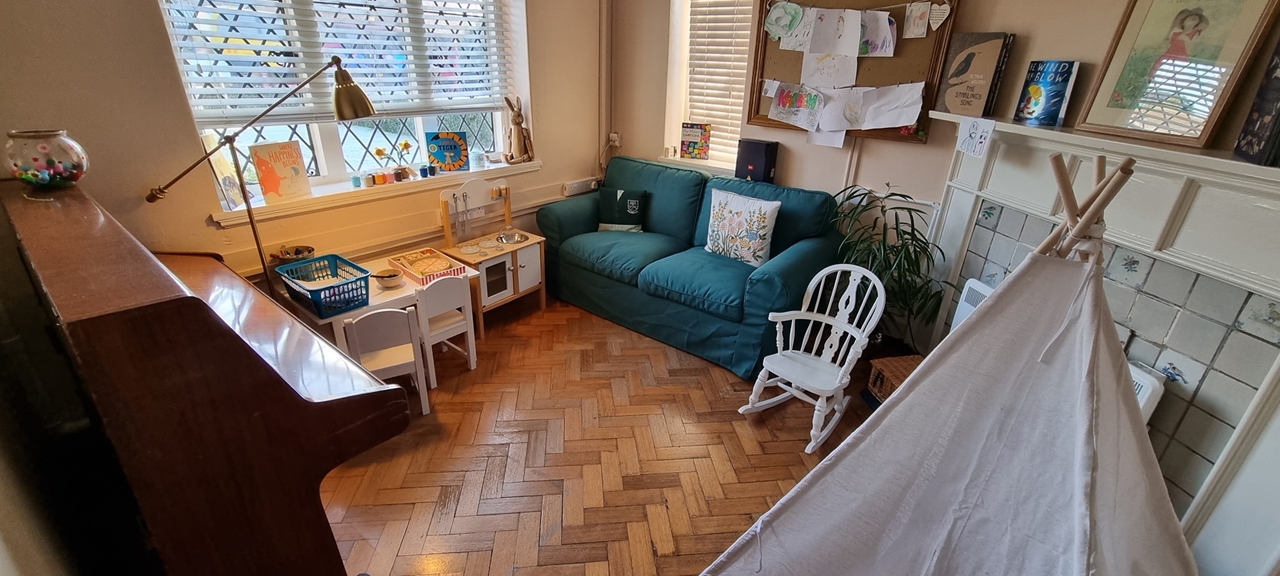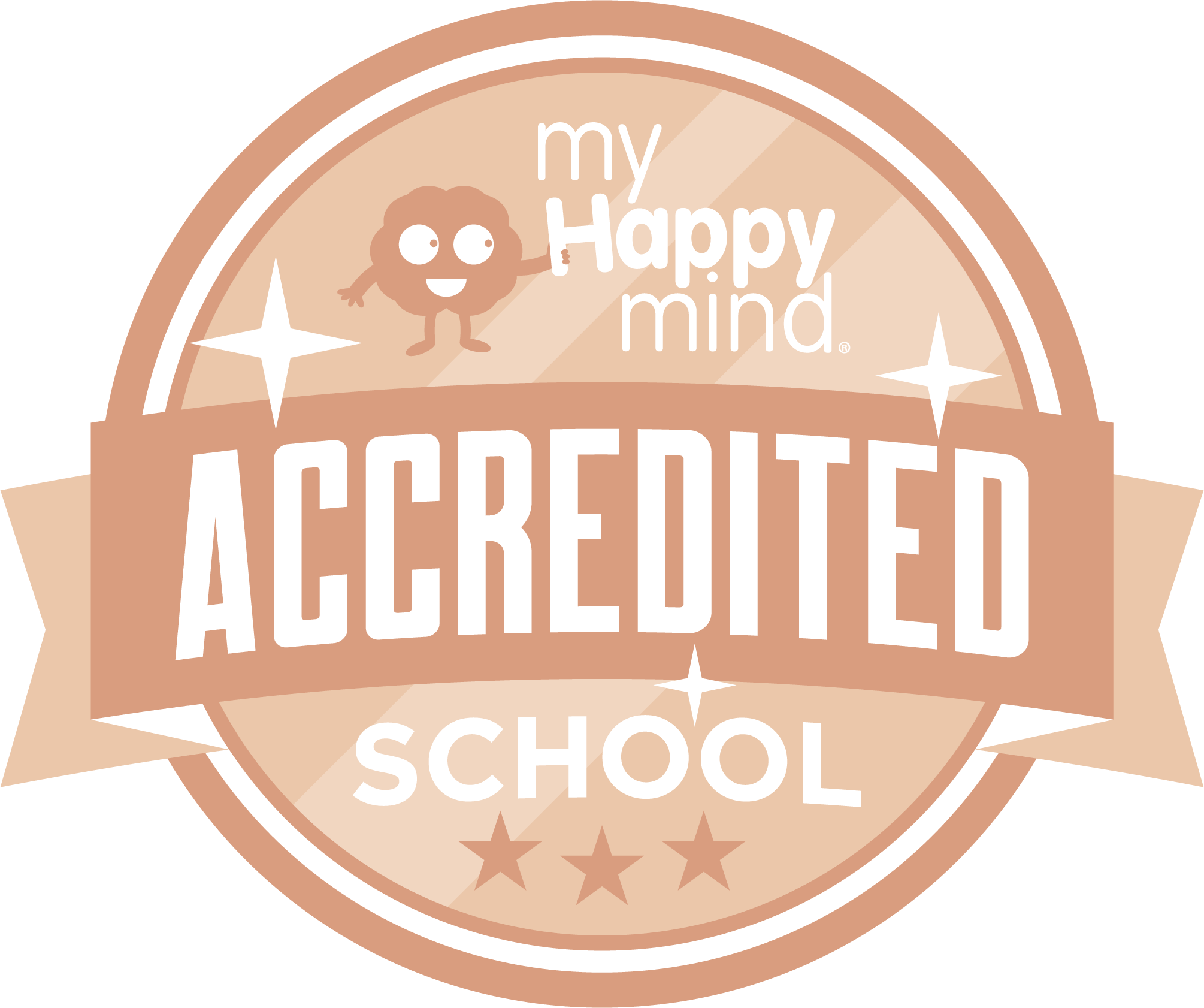SEND Information Report
Information Report
The SEND code of practice (2015) states that all schools must publish details of what SEN provision is available through their 'Information Report'.
You can find all the information regarding our provision including:
- How our school assesses, identifies and plans provision for pupils with special educational needs and disabilities (SEND)
- How we support children with SEND
- The roles and responsibilities of everyone involved, including pupils, staff and parents/carers, in providing for pupils with SEND.
- The technical terms and abbreviations used (see our jargon buster).
This constitutes our information report.
Further information regarding our provision for children with SEND, can be found via our SEND policy and accessibility plan (linked at the bottom of this page).
Special Educational Needs and Disabilities (SEND)
A pupil has SEND if they have a learning difficulty or disability which calls for special educational provision to be made for them.
They have a learning difficulty or disability if they have:
- A significantly greater difficulty in learning than the majority of the others of the same age, or
- A disability which prevents or hinders them from making use of facilities of a kind generally provided for others of the same age in mainstream schools
Special educational provision is educational or training provision that is additional to, or different from, that made generally for other children or young people of the same age by mainstream schools.
Within Bournville Village Primary School:
11.7% of pupils on roll are identified as having SEND compared to an average of 18.3% nationally and 18.7% in Birmingham.
Currently 1.4% children on roll have an Educational, Health and Care Plan (EHCP) compared to an average of 3.5% nationally in state funded primary schools and 4.0% in Birmingham.
Staff have received training to support pupils with a range of needs. Examples of this training includes:
- The SENDCo has achieved the National SEN Award
- A number of staff have received level 1 Autism Awareness training
- All teaching staff have had training in the use of Precision Teaching
- A number of teaching staff have received Dyslexia Awareness training
- A number of staff have received Attachment Awareness training
- All teaching staff have received training in sensory circuits
- A range of teaching staff have had training in positive handling strategies
- A number of staff have had word aware training
- All staff receive annual training on support for medical needs, this includes administering an Epi-pen, asthma awareness and allergy awareness. Where a child has a specific medical need, we liaise with relevant health professionals and parents for advice and training
- All teaching staff have received Colourful Semantics training
- Relevant staff have had specialised speech and language training using WELLCOMM and assessing and supporting speech sounds difficulties
- The Physical Difficulties Support Service (PDSS) have delivered specialised training for pupils with complex physical needs. Three members of staff have received bespoke training for supporting children with physical difficulties
- Medical needs and additional training requirements are discussed on an individual basis
For further information, please refer to our SEND Policy:
Communication and interaction
SEND Code of Practice (2015):
- Children and young people with speech, language and communication needs (SLCN) have difficulty in communicating with others. This may be because they have difficulty saying what they want to, understanding what is being said to them or they do not understand or use social rules of communication. The profile for every child with SLCN is different and their needs may change over time. They may have difficulty with one, some or all of the different aspects of speech, language or social communication at different times of their lives.
- Children and young people with an Autistic Spectrum Disorder (ASD), including Asperger’s Syndrome and Autism, are likely to have particular difficulties with social interaction. They may also experience difficulties with language, communication and imagination, which can impact on how they relate to others.
Some of the things children and young people with these needs might find difficult are:
- Talking to other adults and/or children and young people, especially when in a group.
- Talking about a topic they haven’t chosen to talk about
- Making friends or keep friends for a long time
- Following rules made by someone else
- Dealing with changes to the way they usually do things
- Dealing with noises, smells or other sensations around them
- Saying the things they are thinking
- Understand what other people mean when they are talking
Types of support we currently offer:
Teachers change what they are teaching and/or the way they are teaching to help the child learn more, with the rest of the class.
Many strategies, which benefit pupils with Communication and Interaction needs, are in place for the benefit of all pupils.
‘Autism Friendly’ approaches are used within the classroom, often for the benefit of all pupils, such as visual timetables, visual prompts, various types of task boards, concrete objects in maths and an awareness of children’s sensory needs.
Resources are available such as fiddle toys, ear defenders and motivational activities.
Some children benefit from additional teaching or individualised work, for a short time, to support them to learn new skills. Our Teaching Assistants are trained in a range of interventions, such as speech and language, gross- and fine- motor and social skills . Should your child require a specific intervention, you will have an opportunity to discuss this at your child’s pupil profile review.
We have a Autism Lead Teaching Assistant, who leads our social skills provision and supports our SENDCo in meeting the needs of children with ASD. She has attended training in leading ASD in schools, ASD and Behaviours that Challenge, and Peer awareness.
If your child presents with difficulties in communication and interaction, our SENDCo and/or Autism Lead can support yourself and your child with this.
How we assess this:
Review pupil’s individual targets and assess if they have been achieved
Talk to adults who work with the child
Talk to parents
Talk to the child
Observations of the child or young person to see if they are communicating or interacting differently
Where a number of strategies have been used, but concerns remain about a child’s communication or interaction skills, specialist assessment and support may be sought for the child
External Agency in-School Support:
The Communication and Autism Team (CAT) provide support to children and young people, parents, carers, schools and academies in Birmingham.
A member of specialist staff from this team, works with our school to advise upon provision for individual pupils, as well to support school to develop good autism practice.
Please see the link below for more information about their service:
External Specialist Support:
Our SENDCo can support with a referral to Speech and Language Services, who can assess and support speech difficulties.
A Paediatrician referral is required for a diagnosis of ASD, which can be made by your GP, or through our SENDCo.
Cognition and learning
SEND Code of Practice (2015):
- Support for learning difficulties may be required when children and young people learn at a slower pace than their peers, even with appropriate differentiation. Learning difficulties cover a wide range of needs, including moderate learning difficulties (MLD), severe learning difficulties (SLD), where children are likely to need support in all areas of the curriculum and associated difficulties with mobility and communication, through to profound and multiple learning difficulties (PMLD), where children are likely to have severe and complex learning difficulties, as well as a physical disability or sensory impairment.
- Specific learning difficulties (SpLD), affect one or more specific aspects of learning. This encompasses a range of conditions such as dyslexia, dyscalculia and dyspraxia.
Some of the things children and young people with these needs might find difficult are:
- Take longer to learn skills
- Find it difficult to remember things such as the important words for reading and timetables
- Find it hard to understand how to use letter sounds to read and spell words
- May need more time to think about their answers
Types of support we currently offer:
Teachers change what they are teaching and/or the way they are teaching to help the child learn more, with the rest of the class.
Many strategies, which benefit pupils with Cognition and Learning needs, are in place for the benefit of all pupils.
‘Dyslexia Friendly’ approaches are used for the benefit of all pupils, such as the use of coloured backgrounds and appropriate fonts for presentations. Also, resources printed are printed on coloured paper, when this is needed, coloured overlays are available and we have a collection of reading books published in a dyslexia friendly font.
Individual targets are set, which show what the child needs help with.
Some children benefit from extra adult support, during some of their lessons. Additional adult support, through a teaching assistant, is often available during Maths and English lessons.
Some children benefit from additional teaching or individualised work, for a short time, to support them to learn new skills. Our Teaching Assistants are trained in a range of evidence-based academic interventions. Should your child require a specific intervention, you will have an opportunity to discuss this at your child’s SEND review meeting.
Some children may benefit from using assistive technology. Its use is carefully considered based on children’s needs. Within our school, when appropriate, children can access iPads, Talking Tins, spell checkers and in some cases children have access to a laptop.
How we assess this:
Review pupil’s individual targets and assess if they have been achieved
Talk to adults who work with the child
Talk to parents
Talk to the child
Using the school’s data tracking system
School’s termly standardised academic assessments
Where a pupil’s attainment is significantly below the expected standard, the Birmingham Language and Literacy and Maths Toolkits may also be used to track progress
Where a number of strategies have been used, but concerns remain about a child’s progress, specialist assessment and support may be sought for the child
External Agency, in-School Support:
We have a member of staff from Pupil and School Support (PSS) who works with us to support pupils with cognition and learning difficulties and other vulnerable groups, as well as providing training and strategic support for the development of SEND provision.
Please follow the link below for further information on this service.
In addition, we have support from an Educational Psychologist (EP) from the Birmingham Educational Psychology Service.
Our EP may assess a pupil and carry out direct support work or will provide advice to school on provision. In addition our EP also delivers staff training, as well as workshops for parents.
Please follow the link below for further information on this service.
Our SENDCo can advise you on the Birmingham Dyslexia Pathway, which is accessed through Pupil and School Support (PSS).
External Specialist Support:
A Paediatrician referral is required for a diagnosis of Dyspraxia, which can be made by your GP or through our SENDCo.
A referral for NHS Occupational Therapy can also be made by the school SENDCo, a GP or Paediatrician.
Social, Emotional and Mental Health (SEMH).
SEND Code of Practice (2015):
- Children and young people may experience a wide range of social and emotional difficulties which manifest themselves in many ways. These may include becoming withdrawn or isolated, as well as displaying challenging, disruptive or disturbing behaviour. These behaviours may reflect underlying mental health difficulties such as anxiety or depression, self-harming, substance misuse, eating disorders or physical symptoms that are medically unexplained. Other children and young people may have disorders such as attention deficit disorder, attention deficit hyperactive disorder or attachment disorder.
Some of the things children and young people with these needs might find difficult are:
- Following rules set by others
- Sitting still for very long
- Listening to and following instructions
- Understanding how they are feeling
- Making friends
- Dealing with their difficulties in a way that does not cause harm to themselves or others
- Taking responsibility for the things they do
Types of support we currently offer:
Teachers may change what they are teaching and/or the way they are teaching to support a child, with these needs, within the the classroom. Children, with these needs, can benefit from strategies such as more frequent breaks from their work and visual prompts to help them concentrate independently.
We have an Emotional Literacy Support Assistant (ELSA), who has had specialist training and can work directly with pupils. This work can include opportunities for a child to talk about what is upsetting them and/or programmes of support designed to teach a child skills to support themselves e.g. coping with anger, or to cope with specific events e.g. bereavement.
Our SENDCo and ELSA can also advise teaching staff on how to support children, with these needs, effectively within the classroom.
We have Teaching Assistants trained in a variety of interventions, such as social skills and confidence-building groups.
Resources are also available such as fiddle toys and motivational activities.
Individual targets are set, which show what the child needs help with.
In addition to the above, we have also created 3 separate pastoral rooms throughout our buildings - The Den, The Burrow and The Cottage. These rooms are used in a variety of ways such as for interventions, 1:1 work, nurture sessions, group activities, etc. The main function of these rooms is to allow children with SEMH, SEND, dysregulation or a variety of other needs a calm and inclusive space where they can regulate and gain access to the structured support they might require to facilitate their return the the classroom and their learning.
How we assess this:
Review pupil's individual targets and assess if they have been achieved
Talk to adults who work with the child
Talk to parents
Talk to the child
Observations of the child or young person to see if, and how, they are coping within school
Where a number of strategies have been used, but concerns remain about a child's progress, specialist assessment and support may be sought for the child and in some cases their family
External Agency in-School Support:
We have support from an Educational Psychologist (EP) from the Birmingham Educational Psychology Service.
Our EP may assess a pupil and carry out direct support work or will provide advice to school on provision. In addition our EP also delivers staff training, as well as workshops for parents.
Please follow the link below, for further information about this service.
External Specialist Support:
Our SENDCo can support with a referral to Forward Thinking Birmingham, who can offer Mental Health support.
Pause, delivered in partnership with Forward Thinking Birmingham, is a well-being drop-in service for anyone under the age of 25 with a Birmingham GP.
A Paediatrician referral is required for a diagnosis of Attention Deficit and Hyperactivity Disorder or Attention Deficit Disorder, which can be made by your GP or through our SENDCo.
Sensory and/or physical needs
External Specialist Support:
Our SENDCo can support you to access charities and services, who can support children with Physical Disabilities and/or sensory impairments.
Additional information
Sensory and/or Physical Needs
SEND Code of Practice (2015):
- Some children and young people require special educational provision because they have a disability which prevents or hinders them from making use of the educational facilities generally provided. These difficulties can be age related and may fluctuate over time. Many children and young people with vision impairment (VI), hearing impairment (HI) or a multi-sensory impairment (MSI) will require specialist support and/or equipment to access their learning, or habilitation support. Children and young people with an MSI have a combination of vision and hearing difficulties.
- Some children and young people with a physical disability (PD) require additional ongoing support and equipment to access all the opportunities available to their peers.
Some of the things children and young people with these needs might find difficult are:
- Hearing what others in the classroom or school setting are saying
- Reading words on books, worksheets or whiteboards that are not made bigger or changed to help them
- Moving around without the help of a walking aid or wheelchair
- Personal care e.g. dressing
- Using pencils, scissors, knives and forks and other things that we need to use without changes or support
- Taking medication without adults helping them
Types of support we currently offer:
Teachers change what they are teaching and/or the way they are teaching to help the child learn more, with the rest of the class
We have Teaching Assistants trained in providing physical support to children with physical disabilities, manual handling, delivering physiotherapy programmes, meeting the needs of children with hearing impairments and in delivering fine– and gross– motor skills programmes.
We have teachers familiar with supporting pupils who wear hearing aids.
We have specialist equipment for use during lessons such as PE, to enable full access to the curriculum.
We have wheelchair accessble entrances to each of our 3 buildings
We have two disabled access toilets, one located with our George building (key stage 2) and the second located with Cadbury building (foundation key stage).
We have an external lift fitted, enabling wheelchair access to the dining room and library which are situated on the lower level of George building (key stage 2)
As a school, we are committed to continuing to improve access to our Grade II listed building.
Our Accessibility Plan further elaborates on how we intend, over time, to increase the accessibility of our school for disabled pupils.
How we assess this:
Sensory and/or physical needs are usually identified by specialist healthcare professionals. Our SENDCo can support you with seeking referrals to the relevant service.
Within school we can:
- Review pupils' care plans
- Review pupils' managment plans
- Talk to pupils
- Talk to the adults who work with the child
- Observations of the child or young person to see if, and how, they are coping within school
Please follow the link below, for further information about our accessibility arrangements.
There was an error processing this link (the page was not found).
External Agency in-School Support:
We are able to access additional support and advice on provision for pupils with these needs from the following teams:
Hearing Support Team
Vision Support Team
Physical Difficulties Support Service
Please follow the links below, for further information on these services.
Parent and pupil partnership
Education, Health and Care Plans (EHCP)
A small number of children may require an Education, Health and Care Plan to enable their needs to be met.
Definition
An EHCP details the education, health and social care support that is to be provided to a child or young person who has SEN or a disability. It is drawn up by the local authority after an EHC needs assessment of the child or young person has determined that an EHCP is necessary, and after consultation with relevant partner agencies.
Who needs an EHCP?
A child or young person (up to the age of 25 years) who:
a)has severe or complex long term needs that affect their everyday life;
b)requires provision and resources that are not normally available within a mainstream education setting;
c)requires intensive help and support from more than one agency; and
d)despite relevant and purposeful levels of support being provided within school, they are making limited or no progress
Parents/carers are able to request an EHCP assessment for their child, from the local authority, or the school can make a request, with permission from a legal guardian.
If you feel your child may need an EHCP, please speak to our SENDCo Sarah Woodall who can discuss this with you further.
EHCP Reviews
EHCPs are reviewed annually following person-centred principles. Reviews are attended by parents, relevant professionals and the child themselves. This is an opportunity to review a child's provision and progress towards their targets. We strongly encourage both pupils' and parent/carers' participation in this process.
If your child has an EHC Plan and you are not sure when their review is due, please contact our SENDCo. You are welcome to request an earlier review if you feel this is necessary.
Further information
For more information on Birmingham's EHCP process please see the information within Birmingham's local offer:
At Bournville Village Primary School, we are committed to working in partnership with parents/carers and children, to meet the needs of all children with special educational needs and disabilities. We offer many opportunities for parents/carers to be involved in their child’s learning, such as workshops, parents’ evenings and parent meetings.
Who can I talk to if I have concerns or questions about my child’s needs or learning?
We operate an open door policy and you are welcome to come into school to share any concerns or questions you may have about your child.
In the first instance, please arrange to see your child’s class teacher, preferably at the end of the school day, when he/she will have more time to discuss any concerns.
Your child’s class teacher is responsible for:
- Checking on the progress of your child and identifying, planning and delivering any additional support your child may need and letting the SENDCo know as necessary.
- Writing pupil progress targets, and sharing and reviewing these each term.
- Personalising teaching and learning for your child to ensure they make the best possible progress.
- Ensuring that the school’s SEND policy is followed in the classroom.
Your child’s class teacher may direct you to the school SENDCo, Mrs May.
If you would like a meeting with our SENDCo you can contact her via the school telephone number (0121 675 9098) or by contacting the school office email address, [email protected].
As SENDCo, Mrs May is responsible for:
- Developing, monitoring and reviewing the school’s special educational needs and disabilities (SEND) policy.
- Co-ordinating the provision for children with SEND across the school.
- Ensuring that parents are:
- Involved in supporting their child’s learning.
- Kept informed about the range and level of support offered to their child.
- Included in reviewing the progress their child has made.
- Liaising with a range of external agencies who can offer advice and support to help pupils overcome any barriers to learning
- Providing specialist advice and facilitating training for teachers and support staff.
Pupil Profiles
If your child has a special educational need or disability and/or requires additional provision over time in order to make progress, we may meet with you to decide if it is appropriate to create a learning plan and a one page profile for them.
These are a plan of their targets, strategies for support and additional interventions.
We hold termly SEND reviews (usually just prior to parents’ evening). These are attended by your child’s class teacher and the SENDCo, to review your child’s progress towards their targets and gain your input so we can co-produce their new targets. Pupils are also involved in reviewing their Pupil Profile targets, sharing their views of the targets and their progress towards them prior to the meeting. However, whenever possible, pupils also attend their review meetings.
Partnership Plans
For some pupils their needs are continually evolving and a higher degree of detail and flexibility is required in how the school delivers their provision. This is especially the case for pupils with Social, Emotional and Mental health needs, for whom it is important that we clearly identify details such as triggers and what strategies don't work; aspects which are not as relevant to pupils with other types of need.
For pupils such as these, we will write a Partnership plan. This plan may be written as a pupils sole plan or may supplement other types of plans.
This plan outlines the triggers which effect a pupil, the behaviours which are exhibited as a pupil begins to find a situation difficult, during a crisis point and following this. It also details what support that pupil responds to and what strategies to avoid using.
This plan is a working document and such is reviewed continually.
Should your child require such a plan or have one, you will be involved in it's completion and any revisions will be shared with you routinely.
SEN Support Provision Plans
Some pupils require high levels of specialist support and intervention, for which the school requires some additional funding in order to implement.
A SEN Support Provision plan is a document, specific to Birmingham, which schools can complete and submit in order to seek additional funding. It is an in-depth view of a pupil's background, their strengths and additional needs within the four areas of SEND and the provision which is required to meet these needs.
A professional from one or more external teams, such as CAT, PSS or the Educational Psychology, must be involved with your child and advise on the content of the plan, for us to be able to submit it for a funding request. We also include parents/carers in the process of writing the plan for their child.
These plans are reviewed annually and parents/carers are strongly encouraged to participate in the review process.
Please note, unlike an EHCP, SEN Support Provision Plans are not statutory documents.
Education, Health and Care Plans
If your child has, or you feel requires, an Education, Health and Care Plan (EHC Plan), please see this section for further details.
SEND Identification Process and Graduated Approach
In the Government’s SEND Code of Practice (2015) there is an emphasis on ensuring children’s needs are met through a graduated approach.
The document below explains, in detail, how we follow the graduated approach Bournville Village Primary School, for identifying any needs children may have and the level support we offer them.
Graduated Approach at BVPS
Support for children with SEND can be organised into three categories:
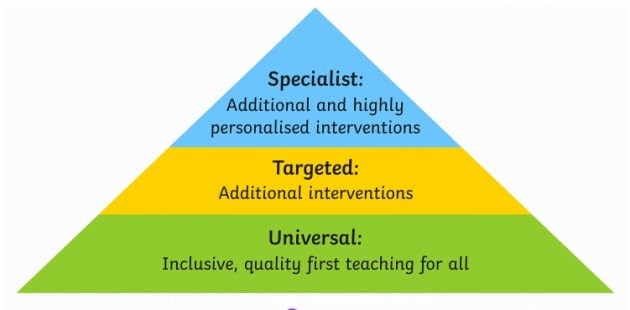
The type of assessment, plan and the input a child receives will depend on their needs and what approaches have already been tried.
Most children are supported effectively though universal, quality first teaching. These are within class support strategies, which support children to access learning effectively alongside their peers.
If a child has not made progress, following the implementation and review of such strategies over time, then additional targeted interventions will be put in place. The benefit of out of class interventions, is always carefully weighed against what that child may be missing whilst participating that intervention.
For children who are not making sufficient progress, despite these approaches, or for whom their identified needs cannot be met through universal or targeted approaches, then specialist approaches will be introduced.
For more details regarding the types of universal, targeted and specialist approaches we use to support children, please information on each area of need.
The type of assessment, plan and the input a child receives will depend on their needs and what approaches have already been tried.
Types of assessment:
- Parent, carer and pupil views
- Staff views and assessments
- SENDCo and teacher observations
- Special assessments
- Initial Concern Forms
Types of plan:
- Pupil targets
- Pupil Profile
- Education, Health and Care Plan
- SEND Support Provision Plan
- Partnership plan
What we do:
- High quality, in-class strategies & resources
- A range of out of class interventions
- Pastoral lead
- In-school and external specialist support
Our SENDCo will meet with parents/carers to discuss specialist support services and can refer pupils, when this is required. See the links to individual areas of need for further details.
Initial Concern forms (ICF)
As previously stated, we endeavour to meet most pupil’s needs through high quality classroom teaching and resources.
However sometimes a class teacher may have concerns about a pupil, as their needs persist despite a number of high-quality strategies being implemented within the classroom as suggested in the Ordinarily Available Guidance (OAG). In the first instance, they will speak with the child’s parents/carers and then following this may write an initial concern form. This form will be reviewed by the SENDCo and may result in your child being observed within the classroom. Following this, additional support strategies and more specialised intervention may be introduced. If difficulties continue to persist, a meeting may be called with parents/carers to discuss whether a pupil will now be identified as having a SEND and whether further referral to an external service is required.
How we review:
All pupils with SEND have a Pupil Profile plan, which outlines their personalised targets and the strategies which support them to access school life, the curriculum and to make progress. These are reviewed termly, by the class teacher and shared with parents/carers during a termly review meeting.
For pupils who require high levels of specialist intervention and support, they may have a SEN Support Provision plan or require an Education, Health and Care Plan (EHCP).
For more information on Pupil Profiles, SEND Support Provision plans and Partnership plans, please see our Parent and Pupil Partnership section.
For more information on EHCPs, please see our EHCP section.
Communication and Transition
We recognise that transition, whether that be to a new setting, class or key stage, can be a challenge for any child, especially so for some children with SEND. There are a number of strategies we use to ensure that transition is as smooth as possible for children and that all those who are working with a child, are aware of their needs and the best way in which to support them.
Reception
Starting school is an exciting step. We use a variety of strategies to ensure it is as smooth as possible for all pupils, such as:
- Inviting parents to attend prospective parent information sessions.
- Opportunities for parents/carers to meet with the SENDCo, to discuss the provision the school can offer.
- A stay and play afternoon for pupils, in the Summer Term before they start school.
- The opportunity for parents/carers to meet with their child's teacher, in the Summer Term before they start school.
- Wherever possible, staff, including the SENDCo, will visit pupils' previous settings.
- All pupils have a reduced timetable, which gradually increases, during their first week of school.
Reception— Year 6 Transition
When moving up to a new year group, there are strategies which are helpful to all pupils such as:
- A designated swap over day in the summer term, when the class spend some time in their new classroom with their new teacher.
- The current and new class teachers have a transition meeting, which gives class teachers an opportunity to pass on important information about each pupil.
- Where transition requires moving to a new building (e.g. Reception - Year 1 or Year 2 - 3), opportunities throughout the year are provided for the class to visit and familiarise themselves with the building.
If your child finds transitions especially difficult and/or has additional needs which require additional transition planning, our SENDCo may speak to you about additional strategies such as:
- Additional opportunities to visit their new classroom.
- More opportunities to spend time with their new teacher, both in their new classroom and their current classroom.
- Opportunities for their new teaching staff to observe and work with them, within their current year group.
- A booklet of photographs of their new teaching staff and classroom to take home.
- Opportunities for parents to meet with their child's new teacher.
- The SENDCo is present during transition meetings, to support with passing on important information.
- Opportunities, once they have 'moved up', to revisit their previous teacher.
Year 5
Many parents begin to think about options for secondary school whilst their child is in Year 5.
- If you would like support in speaking to SEND departments or with visiting secondary schools, then please approach our SENDCo, Mrs Woodall, who will be happy to help.
- In the Spring Term, children with an Education, Health and Care Plan will have a transition review of their progress, needs and provision, which will be an opportunity to discuss appropriate secondary school options.
Year 6—7
The transition to secondary school can present challenges for all pupils.
- When possible, key staff from the secondary school will be invited to the final Education, Health and Care Plan review in Year 6.
- Key staff from the secondary school will be invited to meet with our staff, including our SENDCo, for a transition meeting.
- If appropriate, we will endeavour to arrange extra transition visits for your child to become familiar with their new school and some of the adults who may be working with them.
Moving Schools
If your child is moving to another school:
- We will contact the SENDCo at your child's new school to pass on the details of any special arrangements or support your child requires.
- We will ensure that all records about your child are passed on to the receiving school.
- In some cases, we will invite the SENDCo to meet with our SENDCo.
- If your child has an Education, Health and Care Plan, the SENDCo from your child’s new school will be invited to attend their final review at this school if possible.
Staffing changes
All classrooms have a class file, in which the children's pupil profiles and other such plans can be found. Any staff working temporarily within a classroom, e.g. a supply teacher, are directed to read this information and are directed who to speak to should they need further information. Where pupils have complex needs or difficulties, a member of staff familiar with the pupil will verbally pass on important information.
Children who find staffing changes difficult, are pre-tutored about the change in advance whenever this is possible and supported as per their personal plan.
Jargon Buster
| CRISP |
Criteria for Special Provision. A Birmingham assessment of pupil’s level of need. Can be used to assess the funding required to meet pupil’s needs.
|
| EHC plan |
Education health and care plan. A statutory document drawn up by the LA, setting out the education, health and social care support to be provided to a child or young person with SEN or a disability. Replacing statements and learning difficulty assessments by April 2018
|
| Graduated approach |
A four-part cycle for assessing, planning, delivering and reviewing provision for pupils with SEN
|
| Habilitation |
One-to-one training for children and young people with a vision impairment. It aims to develop their personal mobility, navigation and independent living skills.
|
| LA |
Local authority
|
| LDA |
Learning difficulty assessment. A statutory document drawn up by the LA describing the provision for a young person with SEN in post-16 education, training or higher education. Being replaced by EHC plans by April 2018
|
| Local offer |
Sets out information about provision that the LA expects to be available in its area for children and young people with SEND. Published by the LA
|
| Mediation |
A form of disagreement resolution for parents and young people considering appealing decisions about education, healthy and care (EHC) needs assessments and plans at the tribunal
|
| MLD |
Moderate learning difficulties
|
| Outcome |
Describes the difference that will be made to an individual as a result of special educational and other provision. Must be specific, measurable, achievable, realistic and time-bound (SMART)
|
| Personal budget |
An amount of money requested by parents or young people for securing provision set out in an EHC plan. The budget, prepared by the LA, can be held directly by the parent or young person, or managed on their behalf by the LA, school or other organisation.
|
| PMLD |
Profound and multiple learning difficulties
|
| Learning Plan |
A non-statutory document setting out school-based support and interventions for a pupil with SEN. Other types of school-based plan, which may be used in other settings, include IEPs, SEN support plans and pupil passports.
|
| One Page Profile | A one-page profile is a summary of what matters to a child or young person and explains how best to support them. Other types of school based profiles, which may be used in other settings include pupil passports and pupil profiles. |
| OAG | Ordinarily Available Guidance or provision refers to the activities, experiences and strategies that should be ordinarily available within the existing resource within mainstream settings for all children and young people, including those with SEND |
| SALT |
Speech and language therapy, sometimes speech and language therapist
|
|
SEMH
|
Social, emotional and mental health difficulties
|
| SEND |
Special educational needs and disabilities. A pupil has SEN if he or she needs special educational provision due to a learning difficulty or disability (see special educational provision)
|
| SEN information report |
A document published on the school website, setting out the school’s provision for pupils with SEN
|
| SEND policy |
Sets out the vision, values and aims of the school’s SEND arrangements. Is not necessarily a standalone document.
|
| SEN support |
An overall term that refers to pupils needing special educational provision who do not have EHC plans. Replaces the previous categories of School Action (SA) and School Action Plus (SA+).
|
| SENDCo/SENCo |
Special educational needs co-ordinator. The person in a school responsible for co-ordinating provision for pupils with SEND.
|
| SEND |
Special educational needs and disabilities.
|
| SEND Code of Practice |
Statutory guidance (provided by the government) setting out the duties and responsibilities of organisations, including schools, in relation to children and young people with SEND.
|
| SEND resource base |
Specialist provision within a mainstream school, also known as an SEN unit or specialist resource base. If you feel your child could benefit from a resource base, our SENDCo can advise on this.
|
| SLCN |
Speech and language communication needs.
|
| SLD |
Severe learning difficulties. Can also refer to speech and language difficulties.
|
| Special educational provision |
Provision to help pupils with SEN of disabilities access the curriculum that is different from or additional to the provision normally available to pupils of the same age.
|
| Special school |
A school that is specifically organised to make special educational provision for pupils with SEND. A pupil requires an EHC plan to access this provision.
|
| SpLD |
Specific learning difficulties. SpLD affect one or more particular aspects of learning. Examples include dyslexia, dyscalculia and dyspraxia.
|
| Statement |
A statutory document drawn up by the LA describing the provision for a child or young person with SEN who is still at school. Being replaced by EHC plans by April 2018.
|
| Top-up funding |
Additional funding available from the LA for pupils with high needs, i.e. those whose educational provision costs more than £6000 per year. Usually accessed through a CRISP and EHC assessment.
|
| Transition planning |
Preparation for moves between phases of education or for adult life.
|
| Tribunal |
An independent body that determines appeals by parents or young people against LA decisions on EHC needs assessments and EHC plans, as well as claims of disability discrimination. |
Accessibility arrangements
The arrangements for the admission of pupils with special educational needs and/or disabilities
Definition of Disability
According to the Equality Act 2010, a person has a disability if:
a) He or she has a physical or mental impairment.
b) The impairment has a substantial and long-term adverse effect on his or her ability to carry out normal day-to-day activities.
We aim to ensure all pupils, including those with special educational needs and/or disabilities, are fully included within school life.
Our strategies to do this include:
- having high expectations of all pupils
- adapting the curriculum, including the use of specialist equipment in sport
- planning out-of-school activities including all school trips and excursions so that students with special educational needs and/or disabilities can participate
- setting admissions policy and criteria which does not discriminate against students with special educational needs and/or disabilities or treat them unfairly
- teaching strategies which remove barriers to learning and enable participation for students with special educational needs and/or disabilities
- keeping in mind the needs of pupils with special educational needs and/or disabilities, when making any adjustments to the physical environment of the school
- raising awareness amongst school staff (teaching and non-teaching) through training
- providing written information for pupils with special educational needs and/or disabilities in a form which is user friendly
- using language which does not offend in all its literature and make staff and students aware of the importance of language
- examining our library and reading books to ensure that there are examples of positive images of people with special educational needs and/or disabilities
- for pupils, and other stake holders who may access our site, personalised risk assessments are carried out and adaptations made to mitigate any risks identified
Existing facilities provided to assist access to the school by students with physical needs are:
- A wheelchair accessible entrance in all three of our buildings.
- Two accessible toilets, one located within George building (Key Stage 2) and another located within Cadbury building (Foundation Key stage)
- Accessible parking is available at the main entrance
- An external lift provides wheelchair access to the lower floor of George building (Key Stage 2), where our dining room and school library are located.
For more information on how we support pupils with specific special education needs and/or disabilities, please follow the links contained within our SEND Information Plan.
